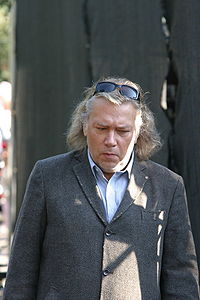Tõnis Mägi Musical artist
Tõnis Mägi (born 18 November 1948 in Tallinn) is an Estonian singer, guitarist, composer and actor. He is one of the most influential and remarkable names in the Estonian rock music for the past 40 years.He grew up in a musical family and became interested in music during his early childhood. While attending in the Tallinn 22nd High School (now Jakob Westholm Gymnasium) he started performing as the choir's soloist in the early grades. After learning to play guitar, Mägi started his musician career as a guitarist in school bands Juuniorid (1965) and Rütmikud (1966). After serving in the compulsory Soviet Army he became the vocalist of Baltika. Later he sang in the bands Kärjed, Laine, Muusik Seif, 777 and Ultima Thule.In the 1970s and 1980s, Mägi gained big popularity not only in Estonia, but in the whole Soviet Union. One of his most popular songs Olimpiada (Олимпиада) became a symbol of the 1980 Moscow Olympics. In 1987, he gave his last concert in Russia, after which he returned to Estonia and focused on the Singing Revolution. Among other patriotic songs of the time, Mägi's song Koit (Estonian for Dawn) became a symbol of freedom.Since 1996 he has been working in Vanemuine theatre in Tartu.
Search
Musical artist
| Career started | 1965 |
|---|---|
| associated musical artist | |
| Background | Solo singer |
| genre | |
| instrument |
